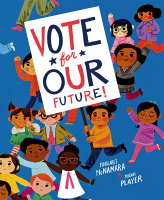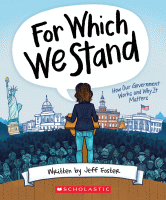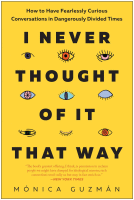With the election season just finishing up, it feels like all we see, hear, and talk about is politics. Looking ahead, it will be another contested presidential battle in 2024. We know as educators that children, tweens, and teens will be asking questions, asserting opinions, and arguing amongst themselves about what the “right” vote should be. As the Journal on Teaching comments, “Instructors are not faced with the question of whether or not to introduce the political into our classes; rather, we are faced with the question of how to deal with the ways that politics are already present.”[1]
For many educators, read-aloud materials are a staple to help navigate challenging conversations. Read-alouds paired with current events will help teach fact versus opinion, critical thinking skills, and strategies for finding reliable evidence. The article referenced above goes on to say, “ Perhaps the most fundamental structural strategy we can adopt is to keep political concerns in mind as we choose our course content.”[2] Choosing books wisely to convey reading strategies and include students in politics has never been more critical.
Learning more about the processes and importance of voting is a great place to find common ground when approaching political discourse . Let’s let books do the tough talking for us and teach pivotal reading skills along the way. Mackin offers classroom services to help you curate books lists—feel free to reach out with your school’s particular needs. In the meantime, here are some amazing titles to help instructors withstand politics during pedagogy.

Grades K-2
For K-2, an age-appropriate introduction to voting and why people vote. Inclusive illustrations and common voter excuses make this a must-read.
Try out:
Vote for Our Future!
McNamara, Margaret, and Micah Player. 2020.
Schwartz & Wade.

Grades 3-6
For 3-6, delving into the whys and hows of government races is important. Broken into chapter segments, teachers can choose the topic at hand.
Try out:
For Which We Stand
Foster, Jeff. 2020.
Scholastic.

Grades 9-12
For high school students, it is less about voting but more about instilling a sense of respect and civility around politics. Chapters allow easy navigation to the topic necessary.
Try out:
I Never Thought of It That Way: A Guide to Building Bridges
Guzman, Monica. 2022.
Benbella Books.
1 Fruchtman, Diane Shane, and Chan Sok Park. “Accepting the Inevitability of Politics in the Classroom: A Proposal for How to Identify Best Practices in Effective and Inclusive Religious Studies Pedagogy.” The Wabash Center Journal on Teaching 1, no. 3 (2020).






